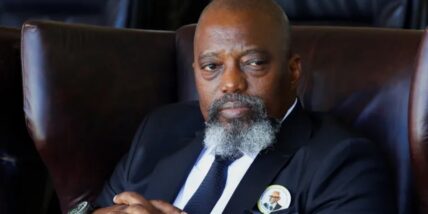The political landscape of the Democratic Republic of Congo (DRC) shook on Tuesday, September 30, 2025, after a military court in Kinshasa sentenced former President Joseph Kabila to death in absentia.
The 54-year-old, who ruled Africa’s second-largest country for nearly two decades, was found guilty of treason, war crimes, and crimes against humanity.

According to court findings, Kabila allegedly:
Supported the M23 rebel group, blamed for mass killings, rape, and torture in eastern Congo.
Enabled insurrection and human rights abuses that displaced thousands of civilians.
Betrayed the Congolese state by aiding rebel advances in mineral-rich territories.
The court also ordered him to pay billions in damages to both the Congolese state and victims of the atrocities.
Kabila’s Response
Kabila, who has been in self-exile since relations soured with his successor President Félix Tshisekedi, was not present at the trial.
He dismissed the case as “politically motivated” and described the court as an “instrument of oppression.”
His whereabouts remain unknown.
The ruling marks one of the harshest judgments against a former African head of state in recent history.
It deepens political rifts in Congo, as Tshisekedi’s government faces mounting pressure to restore stability in the volatile east.
Human rights groups, however, have raised concerns about due process, since Kabila was tried without being in court.
The conflict in eastern Congo, fueled by M23 and alleged Rwandan involvement, continues to devastate communities. Despite a July ceasefire, violence has persisted.
This judgment may signal that Congo’s leadership wants to show zero tolerance for war crimes and treason — but whether the sentence will ever be enforced remains uncertain.






